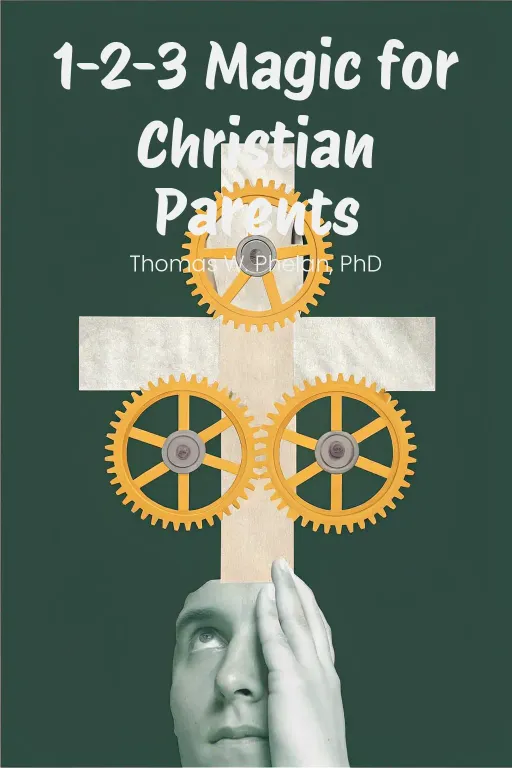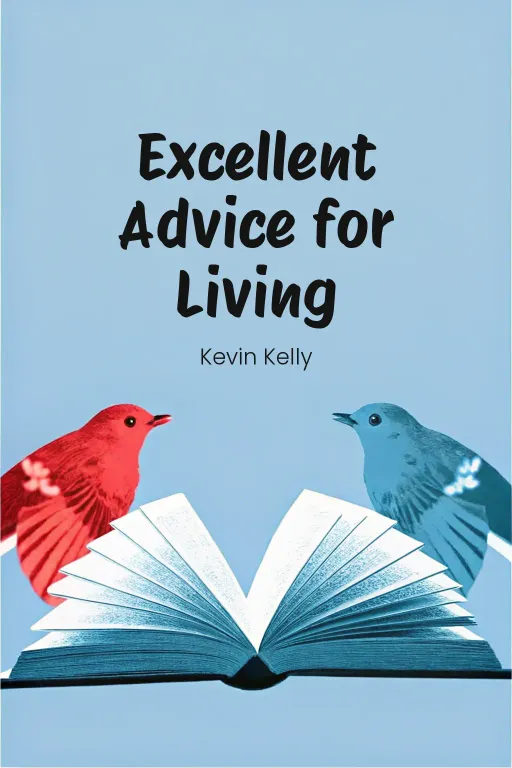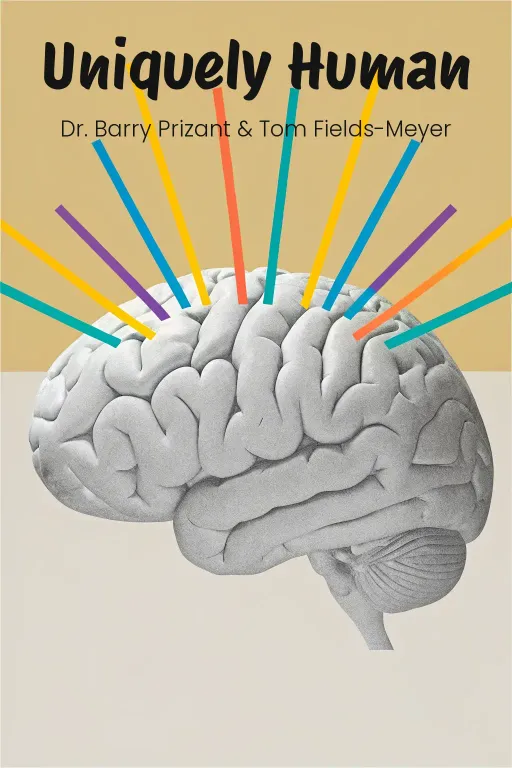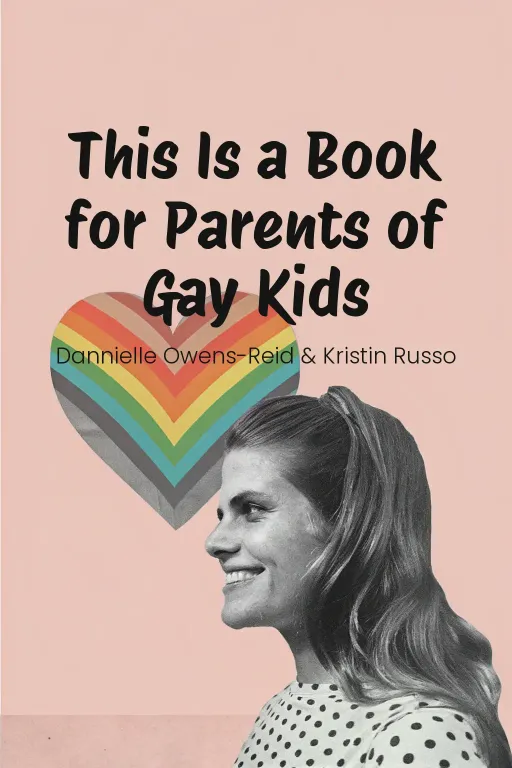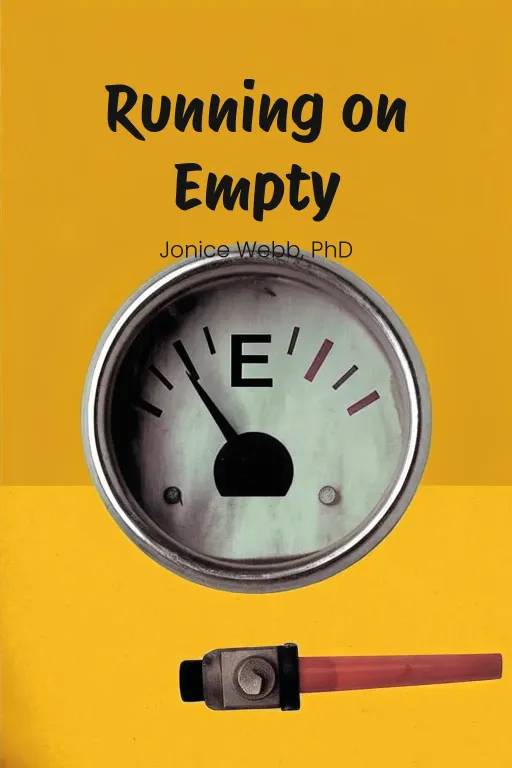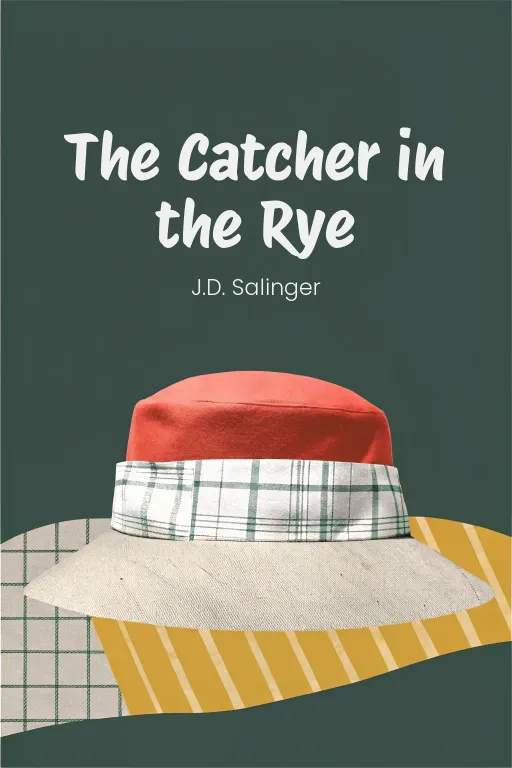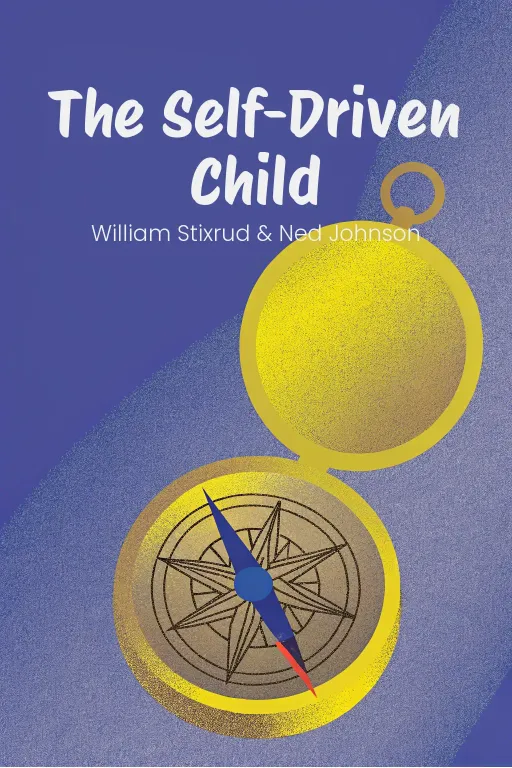
Parenting SOS: Ditch the Guilt, Trust Data!
Podcast by The Mindful Minute with Autumn and Rachel
A Data-Driven Guide to Better, More Relaxed Parenting, from Birth to Preschool
Parenting SOS: Ditch the Guilt, Trust Data!
Part 1
Autumn: Hey everyone, welcome back! Today we're diving into a super interesting topic: parenting. And we're doing it with a book called "Cribsheet" by Emily Oster. It's basically a parenting guide packed with research and data to help us feel less stressed and, you know, more confident. Rachel: Parenting with data, huh? Alright, Autumn, that sounds…thorough. But I gotta ask, are we talking some nice, soothing charts here, or are we gonna need an Excel wizard just to figure out when the kid naps? Autumn: Definitely not the Excel wizard, Rachel! "Cribsheet" takes all that research and turns it into super practical tools. It covers everything – from breastfeeding, sleep training, even how to handle toddler tantrums without totally losing it. Emily Oster’s main point? To help parents block out all the noise, debunk the myths, and really focus on what works best for their own family. Rachel: Okay, I’m intrigued. So, what's the plan today? Autumn: We're breaking it down into three stages. First, we'll talk about why evidence-based parenting is so great. Because, seriously, all those myths and unsolicited advice? They're like mosquitoes, right? We need some repellent. Rachel: Exactly! Autumn: Then, we'll dive into the baby chaos – you know, the sleepless nights, tricky decisions about vaccinations, all that kind of stuff. Rachel: And finally, toddlerhood. That “mini-human” stage where the family is either evolving or exploding. Developmental milestones are happening... It really keeps everyone on their toes. Autumn: Exactly! So, whether you’re a soon-to-be parent, a new parent, or just curious about the science behind raising kids, stick with us. We're going to unpack "Cribsheet" and look at those data-driven decisions that might just change how you approach parenting.
Evidence-Based Parenting Decisions
Part 2
Autumn: Okay, so let's dive right into the foundation here: evidence-based parenting. Emily Oster's whole thing is that parenting can feel like a total emotional rollercoaster, right? Because you're bombarded with all this conflicting advice. But the idea is, with data, you can actually cut through the noise and make decisions that genuinely work for your family. Rachel: I'm definitely on board with dialing down the chaos. But let me play devil's advocate for a sec. Are parents really sitting there crunching numbers and building spreadsheets? Or is this more of just a philosophical approach to decision-making? Autumn: That's a great question, Rachel. Oster's not saying you need some intense algorithm for every single choice. It’s more about giving parents the power to look at evidence like an economist weighing trade-offs: What are the risks? What are the benefits? And what's the context? Take breastfeeding, for example. Rachel: Oh, breastfeeding. That's a topic guaranteed to ignite debate on every playground and online parenting forum. Autumn: Seriously! Oster acknowledges that there are well-documented advantages, like fewer gastrointestinal infections and maybe slightly lower rates of eczema. But she also points out those benefits can get a little overhyped sometimes. Like those sibling comparison studies she talks about? When you actually control for things like socioeconomic status, the real, long-term differences between breastfeeding and formula-feeding aren't quite as dramatic as everyone makes them out to be. Rachel: Ah, the sibling studies—so that's comparing breastfed versus formula-fed kids within the same family, right? That way you're eliminating all the external noise, you know, like how much money a family has or where they live. Autumn: Exactly. And those studies tend to show that there's only minor differences between the two groups, if any, in things like cognitive development or obesity risk. Oster makes the point that, yeah, breastfeeding can be great, but it's not the be-all, end-all. So, for parents who struggle with it – maybe because of medical issues, low milk supply, or just the plain fact that it's hard – formula is totally a valid option. And that's where data can actually help parents let go of some of that guilt. Rachel: Guilt seems to be a recurring theme in parenting, doesn't it? It's like, if you're not doing "the best" according to some random mom on Instagram, you're automatically failing. But this idea that small differences might not actually make or break your kid? That sounds like a huge sanity-saver. Autumn: Totally. And Oster’s analytical lens doesn’t just apply to nutrition; it goes way beyond, like sleep arrangements. Rachel: Ah, sleep, the holy grail! Are we co-sleeping, cry-it-out-ing, what's the deal? Autumn: Oster dives into the data on co-sleeping versus crib sleeping, and guess what? Both can be safe, as long as you take the right precautions. For instance, co-sleeping gets a bad reputation because it’s linked to a higher risk of SIDS – Sudden Infant Death Syndrome. But the data shows you can reduce those risks significantly by avoiding soft bedding, keeping the environment smoke-free, and just following some basic safety guidelines. Rachel: So basically, no fluffy blankets or pillows turning the bed into an obstacle course? Autumn: Exactly. On the flip side, if parents choose crib sleeping, they’re making a perfectly safe and sound choice too – as long as they follow recommendations like putting the baby on their back and keeping the crib free of loose items. Oster’s approach basically lets parents choose what fits best for them. Rachel: All right, sounds pretty reasonable. But let's get into the really controversial stuff here: sleep training. The parents I know get heated about this. Cry it out, gradual extinction... some swear by it, others think it'll turn your baby into some kind of emotionless… you know. Autumn: That’s where Oster’s research gets really interesting. She draws on studies that show sleep training—when it’s done in an appropriate way—doesn’t actually harm babies emotionally or developmentally. In fact, sleep training can sometimes improve the overall mental health of the whole family. Rachel: Because once the baby sleeps, the mom and dad's sanity levels stop circling the drain, right? Autumn: Exactly! One study Oster mentions actually found that babies who went through sleep training not only slept better, but their parents reported less stress and improved mood. It’s a win for everyone! Rachel: Okay, I’m sold on the idea that data can give parents some reassurance when it comes to sleep. But here's the thing: what if the data is just plain counterintuitive? Like, let's say you’re absolutely convinced crying will ruin your child's entire emotional future, and then science tells you otherwise? Autumn: That’s a great point. Oster recognizes that parents often struggle with deeply held fears, or societal norms, that seem to go against the data. That's why she always emphasizes context and tailoring. So, if you as a parent absolutely can’t stomach the idea of letting your baby cry, that's OK. You just weigh your tolerance against the science and decide. Rachel: So it's not like, data or bust. The numbers are there to help inform your choices, but they're not there to beat you over the head with them. Autumn: Exactly. Oster never says, “If the data says one thing, then ignore your instincts.” It’s more about giving yourself permission to use evidence as a tool, not some rigid rulebook. Rachel: Yeah, I like that a lot. Makes parenting feel less like some Olympic-level sport and more like… I don’t know, managing a start-up. You iterate, you pivot, and you try not to run out of steam in the process. Autumn: That is the perfect metaphor! Parenting’s full of these tough calls, but Oster turns those calls into manageable problems that you can tackle strategically, with data and – crucially – a good dose of self-compassion.
Challenges in the First Year
Part 3
Autumn: So, naturally, all this leads us to really understand the practical challenges that parents face in that first year, right? Because now, we're diving headfirst into those intense, pivotal months. Every choice feels monumental, sleep is just this foreign concept, and advice? It's coming at you from absolutely everywhere. Rachel: Critical decisions, huh? I swear, the parenting manual for that first year should be titled something like, "Decisions That Make You Question Everything." And the chapters could be: "Breastfeeding: A Constant Tug-of-War" and "Sleep Training: Tears For Absolutely Everyone." Autumn: You know, honestly, that's not too far off. The first year is basically a gauntlet of challenges. But Oster’s data-driven approach really makes it navigable. She actually builds on that foundational approach we talked about, applying it to real-world concerns like feeding, like sleep, vaccines – all those topics that just spark endless debates and really create a bridge to understanding parenting kind of at later stages, too. Rachel: Feeding, sleeping, and yes, vaccines, the parenting trifecta for existential dread. So, since we briefly talked about breastfeeding, what does Oster recommend for solving actual, on-the-ground struggles with it? Autumn: Well, she really acknowledges that breastfeeding is kind of this double-edged sword. The science undeniably shows its benefits, you know, like fewer gastrointestinal infections. For instance, the PROBIT trial held in Belarus found that breastfeeding mothers saw about a 4% reduction in eczema rates. There was also a pretty big drop in diarrhea among babies, from 13% down to 9%. Rachel: Okay, but I've met parents for whom breastfeeding is not some angelic tableau. For them, it's more like a late-night battle scene, complete with frustrated crying on pretty much all sides. Autumn: That's the reality for so many people. Oster actually dives into the stories of mothers really grappling with these struggles. One example being a mom battling a low milk supply and pushing herself to the point of sheer emotional exhaustion. Oster really emphasizes that while breastfeeding has benefits, it is not worth sacrificing the maternal well-being. Formula is a nutritionally sufficient option when breastfeeding just isn't working out. Rachel: So, the data really says that feeding your baby without, you know, “breaking yourself” is the real goal, not necessarily winning gold in the Lactation Olympics, right? Autumn: Exactly. Oster really humanizes this. She even debunks all these long-held myths, like nipple confusion from introducing pacifiers. Studies that she cites really explain that there's no strong evidence that pacifier use disrupts breastfeeding rates. That, combined with lactation consultants, can really help new moms smooth over those hurdles that often feel insurmountable. Rachel: So, it sounds like she's handing parents two tools: one, actual data to avoid guilt-laden choices, and two, permission to, you know, “stop” romanticizing their struggles like they're some rite of passage. Autumn: Precisely. And from there, Oster really transitions into another huge topic of contention during that first year, sleep. You know, specifically sleep training, which she approaches with the same evidence-based, judgment-free perspective. Rachel: Here comes all the drama. I know people just have opinions, with a capital O, about cry-it-out, co-sleeping, and all of the other bedtime- and sleep-related acronyms. Autumn: Oh, absolutely. But again, Oster cuts through all the noise. Take the cry-it-out method. It's incredibly polarizing, but the data actually shows that it doesn't harm a baby's emotional development when done within guidelines. In fact, it actually often improves the overall emotional climate of the household because parents and babies who are well-rested are just less prone to feeling stressed. Rachel: A dramatic win in the "keeping your sanity" column. But that first week of sleep training feels emotionally brutal, right? I mean, you're hearing your baby's cries, and you're thinking, "Am I raising a future supervillain by doing this?" Autumn: That's where context really matters, right? Oster includes examples, like parents trying the gradual extinction method, in which they progressively increase the time before comforting their baby. Though it can be gut-wrenching at first, by the end of two weeks, you know, they reported a baby who slept through the night, and parents who just felt human again. Rachel: So, it's just short-term heartbreak for long-term harmony. Enlightening, but still, do parents worry that they're ignoring cries that might indicate something's actually wrong? Autumn: Oster addresses that explicitly. The data really reassures us that most prolonged crying during sleep training doesn't indicate harm or neglect when done responsibly. It's really about using structured, evidence-based methods to handle this challenge and ending up with a better-rested family all around. Rachel: Sleep, glorious sleep. And now, for the crowd-pleaser: vaccines. Because if buzzwords like "cry it out" start debates, words like "vaccination" launch outright wars. Autumn: Absolutely. And Oster doesn't shy away from the intensity of this topic at all. She really focuses on tearing down these persistent fears, one of which is the alleged link between vaccines and autism. That originated from a thoroughly debunked 1998 study by Andrew Wakefield. Oster really highlights the major epidemiological studies confirming that there's no connection while stressing that the societal danger of delaying or refusing vaccines is immense. Rachel: Got it. So, the anti-vaccine crowd isn't just making a personal health decision. They're kind of rolling the dice with public health, right? Is that what creates real-world disasters like the 2017 Minnesota measles outbreak? Autumn: Exactly. Oster actually uses that outbreak as a stark illustration of what happens when fear, fueled by misinformation, undermines herd immunity. In that case, vaccine rates in the Somali immigrant community plummeted after activists stoked fears around autism. So, the result? An entirely preventable health crisis. Rachel: That's infuriating. It also reinforces how profound the stakes really are. Vaccines aren't just about protecting your kid; they're about protecting the vulnerable among us. Autumn: Precisely. Oster makes sure that parents understand the collective impact of immunization while giving them the data to feel confident about their decisions, right? Confused by opposing resources? She advises really sticking to credible organizations like the World Health Organization or the CDC. Rachel: All right, so Oster isn't sugarcoating these first-year challenges. What stands out to me is her consistently empowering approach. For breastfeeding, sleep, or vaccinations, she's essentially saying: get informed, yes, but also trust yourself. It's not about being perfect; it's about doing what works for your family. Autumn: Exactly, and that's the essence of Oster's philosophy. Filter out that noise, anchor yourself in the evidence, and navigate that whirlwind first year from a place of really thoughtful, balanced confidence.
Toddler Development and Family Dynamics
Part 4
Autumn: Okay, so now we’re talking about toddlers! The whole parenting game changes, doesn’t it? Suddenly, it’s not just about keeping them alive, but about helping them grow, dealing with their big feelings, and, you know, trying to keep the family sane. Rachel: Exactly! The toddler stage... I like to think of it as parenting boot camp. Potty training, first words, first tantrums... and their first independent opinions, which, let’s be honest, are mostly just “NO!” to everything. "Trial by fire "doesn't even begin to describe it! Autumn: Totally. And what’s so interesting is that this is where parents really have to learn to be, well, adaptable to be flexible. It’s not just ticking off boxes – “Oh, they’re potty trained now!” – it’s about how those milestones change the whole family dynamic. Toddlerhood really forces you to be on your toes, balancing what they should be doing with what’s actually happening at home. Rachel: Easy to say when you’re not the one dealing with a two-year-old screaming for cookies at six in the morning. But alright, let’s dive into the deep end: potty training. Autumn: A classic! And still a hot topic. You’ve basically got two camps: child-led, where you wait for the kid to show they’re ready, and parent-directed, which is more structured – trying to get things moving faster. Rachel: And are these “readiness signs” super obvious? Or did we invent this entire "child-led" philosophy because one day our little genius just handed us their dirty diaper? Autumn: Pretty close. We’re talking about things like staying dry longer, showing interest in the potty, maybe trying to pull their pants down themselves. Basically, they’re showing you that their body and brain are starting to be ready for the task. The idea is to avoid a massive power struggle. Rachel: A very "let the toddler chart their destiny" approach. But for parents who are on a deadline here – preschool, sanity, you know – that probably feels like watching paint dry. Autumn: It can be! Child-led can definitely take longer, especially if they’re not that enthusiastic. Parent-directed is more hands-on: scheduled potty breaks, lots of praise, maybe a sticker chart. It’s a more proactive way to guide them. Rachel: A bit of bribery, am I right? Feels like training for negotiating screen time down the road. Still, bet some kids push back hard against that structure. Autumn: For sure, and that’s where things can get frustrating for everyone. That’s when you need to be adaptable again. Pull-ups at night or during naps, for example – those can really take the pressure off without creating a stressful situation. Rachel: Which makes me wonder… is it just me, or are kids getting potty-trained later than they used to? Autumn: Not just you! Research shows kids start potty training significantly later than they used to. Before 1990, the average age was around 30 months. Now, it's closer to 32 months or older. Part of that shift is driven by modern disposable diapers, they’re so good at keeping kids comfortable, there’s less of a need to rush into potty training. Rachel: So, blame it on the diapers? High-tech convenience has its downsides, I guess. Autumn: Exactly! But the one thing that hasn’t changed is dealing with nighttime dryness. Around 15% of kids still wet the bed at age five, honestly. It is important to approach that with a lot of empathy, remind them that accidents are normal instead of getting upset with them. You want them to keep trusting you and feeling confident while they're working through it. Rachel: So, like reframing spilling your coffee as a “caffeine redistribution exercise.” I get it—it’s all about perspective. Speaking of messy situations, what about discipline? That’s got to be a major flashpoint during the toddler years. Autumn: It really is. She's big on positive reinforcement and helping toddlers learn to handle their emotions. She actually advises against things like spanking, because studies show that can actually lead to more aggression and emotional problems down the road. Instead, she suggests setting clear boundaries and rewarding good behavior. Rachel: Okay, positive reinforcement sounds great… in theory. But when you’ve got a toddler losing their mind because someone looked at their toy the wrong way, how do you even start to reinforce anything? Autumn: Perfect example! Tantrums are often just a sign that they're overwhelmed. They don't have the words to express what they're feeling. So, instead of punishing the tantrum, you can try redirecting them. Offering them a small choice – “Do you want juice or water?” – can reduce their frustration while still teaching them boundaries. Rachel: So, it’s like… distraction mixed with a little bit of control? Autumn: Exactly. And the research backs this up. Programs like Incredible Years teach parents to focus on encouragement and routines. And they've seen incredible success in fostering better cooperation, less aggression, and improved social skills in toddlers. Rachel: I’m starting to see a theme here – patience and flexibility seem to be the key, whether it’s potty training or dealing with tantrums. But let’s switch gears and talk about how all this toddler chaos affects the bigger picture... How does it affect the parents? Autumn: It’s a “really” tough phase for couples, honestly. Studies have shown that marital satisfaction often takes a hit after you have a baby, and the toddler years can really make that worse. A lot of it comes down to unequal workloads. When one parent, usually the mom, ends up shouldering most of the childcare and housework duties, it can really create resentment. Rachel: I’ve read a million articles that say "share the load," but nobody actually tells you how. Autumn: Right? Well, she suggests things like trading off bedtime duty. Or making a list of household tasks and dividing them up clearly so everyone knows what they're responsible for. But honestly, open communication is key. Talking about your expectations and frustrations before things get out of hand can really relieve tension. Rachel: That makes sense. But stepping back, how much of this stress just boils down to plain old exhaustion? Autumn: Oh, a huge amount. Lack of sleep really messes with your emotions and decision-making. She talks about prioritizing good sleep routines for everyone, toddler and parents, and how that can really improve things between couples. Rachel: So, actually sleeping isn’t just "self-care" nonsense; it’s relationship maintenance? So, is there a secret to actually enjoying this stage of life as a family? Autumn: Definitely, and that's joy and flexibility. Families that celebrate little wins – when the toddler finally shares a toy, or makes it to the potty – really build emotional resilience. It's also about changing priorities when things get tough. You know, sometimes, a quick game can totally turn a day around even if it's been chaotic. Rachel: Just making sure I have this straight: we’re relying on sticker charts and peek-a-boo here? That's... actually refreshingly normal. Autumn: Absolutely! Toddlerhood might feel crazy, but embracing the silliness, focusing on simple joys, and figuring out what works for your family can make all the difference.
Conclusion
Part 5
Autumn: So, to wrap up, I think Emily Oster’s “Cribsheet” is essentially a call to arms, especially for parents who feel totally lost in the sea of conflicting advice. Whether we're talking about breastfeeding, sleep training, or even potty training, she's just reminding us that real data, not just societal pressure, should really be the compass guiding our decisions. Rachel: And the data pretty much confirms this, right? There’s almost never a single, perfect solution that works for everyone. Parenting, it seems, is all about finding that sweet spot, balancing solid evidence with keeping our own sanity intact. And trusting that “good enough” often truly is enough. Autumn: Exactly! Oster isn’t promising some kind of flawless parenting experience, but she is promising clarity. By debunking common myths, really focusing on the evidence, and encouraging us to stay flexible, she’s giving parents permission to really prioritize what works for their own unique family, instead of trying to live up to some external, societal expectation. Rachel: So, the big takeaway? Filter out all the noise, choose what genuinely works for you and your family, and please, don’t forget to celebrate even those small, messy wins along the way. Parenting isn’t about chasing perfection; it’s really about making progress, bit by bit. Autumn: And on that note, we sincerely hope you’re feeling a bit more confident and, hopefully, a lot less stressed about navigating this wild, unpredictable adventure of raising tiny humans. Until our next chat! Rachel: Take care, stay curious, and most importantly, don’t be afraid to trust your own instincts. You’ve totally got this.
